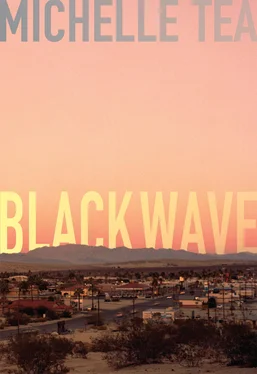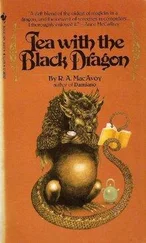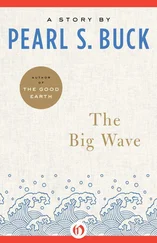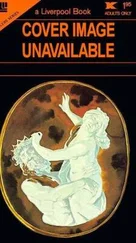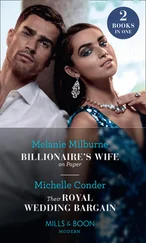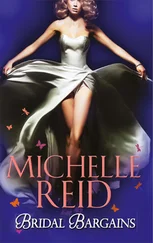Michelle closed her laptop. Maybe something was germinating inside her and she was fucking it up with all this obsessing over the perfect universal male narrator. She had an inkling of inspiration — maybe she could take her life and sort of superimpose it onto Wendy. Maybe an aging, crack-smoking, Bostonian psych nurse in a lousy relationship would be compelling to readers, maybe they would sympathize with her and not judge her drug use. That was the thing — people tended to judge drug abuse unless you were an imposing or hardy man and then they sort of reluctantly envied your daring. Still, the tragedy of Wendy was so compelling to Michelle, perhaps she could find a way to articulate it to a large audience and cross over and really be a writer then, be safe, have a future. Michelle thought about it. She sat in her kitchen late at night listening to the Smiths.
And when you want to live,
how do you start?
Where do you go?
Who do you need to know?
Oh. .
Well, Wendy would have to be straight, for starters.
Michelle was drinking from a great big jug of wine. When the jug ran dry she would lie upon her futon and sleep. Except for the nights when she craved, really craved, another jug of wine. If she had emptied that first jug by a reasonable hour the Pink Dot would still be open and she could order herself another. Oh, the Pink Dot was so marvelous! Michelle didn’t understand why all cities didn’t have them, it had convinced her of Los Angeles’s superiority — sorry, San Francisco. Yes, the earth is deader here than anywhere else on the planet, but facts are facts: in Los Angeles you could make a phone call, read the numbers from your ATM card, and forty minutes later a man would be at your door with liquor, cigarettes, and a dish of pasta in a takeout container. Los Angeles wins.
Michelle liked to order champagne. Though she might actually want another jug of Carlo Rossi Paisano, a sturdy bottle, wide and round, low-slung, like a lady pregnant with a belly full of wine, she ordered instead champagne. Champagne was less alcoholic. It was more celebratory, performative. Michelle was taking on the persona of a slightly lunatic female drinking champagne at her kitchen table at three o’clock in the morning. There was a strength inside the tragedy of it, if you regarded it from the right angle and depending on what you wore. Drinking and smoking in a pair of sweats and a stained T-shirt was an obvious cry for help, but if Michelle teetered around her kitchen in a fluffy nightgown made in the 1950s, something pink and polyester with bits of lace and flowers, and over that wore a cover-up of sheer pink chiffon that floated out behind her when she clicked around in her golden mules, yes, mules, stuck with wavering bits of marabou — if you were wearing this and drinking champagne right from the bottle, well, something fabulous was happening! No matter that no one was there to see it. In such a getup, late-night binge drinking was acceptable.
Also, in addition to what you wore (finery) and what you drank (champagne, preferably pink, to match your finery), what you did while drinking alone late at night made the difference between alcoholic and artistic. Like if you sat at the window and cried because you had moved miles away from home and friendship and had nothing, if you were left only with the dregs of your personality, replaying everything that you had done wrong in your relationships, psychoanalyzing yourself, alternately blaming your parents and then feeling terrible and weak for blaming your parents — that would be really alcoholic.
But if you sat at your kitschy 1950s kitchen table and made a gigantic scrapbook out of your life’s ephemera, turning your regret and sadness into a craft project, that was artistic. That was what Michelle did, in a thrifted nightgown, finishing off a bottle of wine she’d found on sale at the Rite Aid earlier that day. The Rite Aid was at Hollywood and Gower, in a part of Hollywood called Gower Gulch. In days of yore, aspiring actors would hang out on the corner in cowboy gear, hoping to be picked up to work as an extra in a spaghetti western. The front of the drugstore was painted with murals of cowboys swinging lassos and pointing shotguns. Inside, Michelle bought ice cream. She loved Rite Aid’s rocky road in a dense, square scoop on a cone. She also liked the discount red wine. She went to Rite Aid often.
Every photograph Michelle ever snapped went into her scrapbook. Photos of her singing karaoke with Andy one Christmas Eve, hours before becoming alcohol poisoned. Photos of Ziggy on New Year’s Eve, topless at the queer bar, a metallic paper hat on her head, piercing needles and glitter stuck to her skin. A photo of Michelle outside her old house in a fake leopard fur coat — snow leopard — her clunky motorcycle boots, a cloth flower in her hair, looking at the camera with love in her eyes. Andy had been behind the lens. She pasted them into the scrapbook. Flyers for every event Michelle had gone to in the past ten years — benefits for sick dogs and bunnies, for Model Mugging, to save a failing queer business, to put a band on tour. Letters from people Michelle would never see again because she moved to Los Angeles. She would sit and drink and smoke out the kitchen window, her fingers growing gummy with glue stick, and when the glue stick went dry she moved to Scotch tape and when the roll spun out she switched to duct tape and then she was really drunk, about a half hour away from putting in a call to the Pink Dot — Think Pink! — for a bottle of celebratory champagne and another pack of blackout cigarettes. The scrapbook was a massacre of torn pages and fibrous slabs of industrial tape.
I’m making a scrapbook! Michelle thought. Michelle’s mother Kym made scrapbooks. Michelle felt oddly close to her mother in those late hours, imagining Kym crafting through the heat of the New England night, also unable to sleep, smoking joints and pasting pictures of the past into tidy albums.
Michelle had moved to Los Angeles with three little suitcases packed with her personal memorabilia. She lifted piles of paper from the luggage onto the table and worked through the heap methodically. Smoke gusted from her mouth and fruit flies dive-bombed her glass of wine and died there, Michelle fished them out with a spoon. After a certain point she was too drunk and too obsessed with the scrapbook to remember to push the plastic cork back into the cheap jug of wine and the flies would invade the bottle, swiftly drinking themselves to death, becoming a raft of bodies floating on the surface. Michelle poured herself a fresh glass, straining the wine through a paper towel, making a bit of a mess, but the table was already so grimy with glue. Bits of snipped paper blew around like confetti. Michelle looked up and caught her reflection in the darkened kitchen window.
Is This Gross? she asked herself, wrinkling her nose at the paper towel full of dead flies.
In San Francisco Michelle had drunk nightly and long into the morning, but she did so among a community of drinkers and so nothing looked amiss. It was social, it was lively, it was what everyone did. In Los Angeles, cleaved from her drinking buddies, Michelle continued solo in her habits and found them to look a little different. Maybe a little pathetic
It’s Not Any Different, she said grandly, raising a dollar-store juice glass painted with a happy elephant. Wine and a stray dead fruit fly sloshed inside. It Is No Different Than Before.
Michelle pasted another smiling picture of herself into a notebook. She wondered, drunkenly, if she were perhaps dying, if she had lugged herself to the edge of the state to die like a dog alone on a cliff. Maybe she should dry out, go on a health kick. She had cut her drug intake drastically, no more heroin, no more cocaine. It had seemed fine for Michelle to keep drinking, but the scrapbook carnage before her on the table, the paper towel lurid with wine and the bodies of a hundred fruit flies, it looked worrisome, like a metaphor for a situation too awful to consider. Michelle vowed to put it away. She would learn to grill fish. Too late, no more fish left. She would learn what the healthy thing to grill was now and she would get it and she would grill it. She would wear moisturizer on her face and clean the house, put traps out for the roaches so she would not be forced to kill them with her fists each morning — that wasn’t sexy, Michelle was letting herself go. This was how women got ruined. In the darkened bedroom the telephone rang. It was the Pink Dot. Michelle buzzed the delivery person into the building. She returned to the kitchen, the foiled neck of a champagne bottle golden in her hand.
Читать дальше
